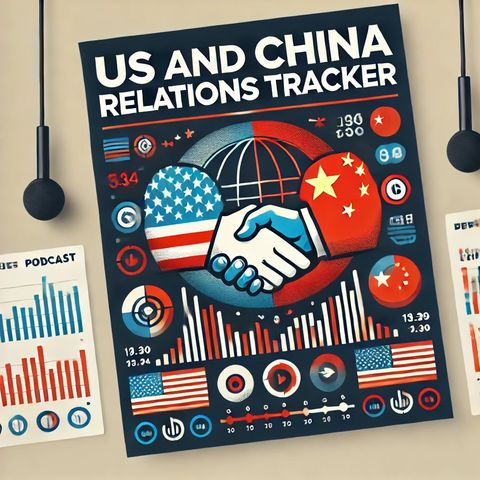Navigating the Complex Dynamics of US-China Relations in a Changing Landscape

Descarga y escucha en cualquier lugar
Descarga tus episodios favoritos y disfrútalos, ¡dondequiera que estés! Regístrate o inicia sesión ahora para acceder a la escucha sin conexión.
Navigating the Complex Dynamics of US-China Relations in a Changing Landscape
Esta transcripción es generada automáticamente. Ten en cuenta que no se garantiza una precisión absoluta.
Descripción
In the aftermath of recent elections, the trajectory of US-China relations is a topic of intense scrutiny and debate. Observers are weighing in on how the political changes in the...
mostra másOne area of focus is the potential for collaboration in the financial sector. Despite ongoing trade disputes and diplomatic disagreements, both countries recognize the mutual benefits that could arise from closer financial ties. This includes potential partnerships in investment, technology, and green energy initiatives. Such collaborations could serve as a stabilizing factor in an otherwise volatile relationship.
Historically, US-China relations have been a mix of competition and cooperation. Trade has long been a contentious issue, with tariffs and intellectual property rights often at the center of disputes. However, there are also areas where both countries have found common ground, such as addressing climate change and promoting global economic stability. The recent shifts in the political landscape of the US might open new opportunities for dialogue in these areas.
In the realm of technology, competition is fierce. Both nations are racing to secure technological dominance, particularly in fields such as artificial intelligence, 5G, and quantum computing. This rivalry has significant implications not only for the two countries involved but also for the global economic and political order. While competition is inevitable, there is also potential for cooperation in setting international technology standards and ensuring cybersecurity.
Moreover, cultural exchanges and educational collaborations could play a role in easing tensions. By fostering mutual understanding and respect, these soft power strategies might pave the way for more constructive engagement on contentious issues. Initiatives such as student exchange programs and joint research projects can build bridges that transcend political differences.
The role of international organizations and other global players is crucial as well. Allies and partners of both the US and China are closely watching the developments between the two countries, as their economic policies and diplomatic decisions have far-reaching global consequences. The international community may play a mediating role, encouraging dialogue and cooperation that benefit not just the US and China, but the world at large.
Ultimately, the future of US-China relations remains uncertain, but both nations have much to gain from finding a path towards cooperation. As they navigate the complexities of their relationship amidst changing domestic and international landscapes, it is clear that diplomacy, mutual respect, and shared goals will be essential in shaping a stable and prosperous future for both countries and the global community.
Información
| Autor | QP-4 |
| Organización | William Corbin |
| Página web | - |
| Etiquetas |
Copyright 2024 - Spreaker Inc. an iHeartMedia Company
